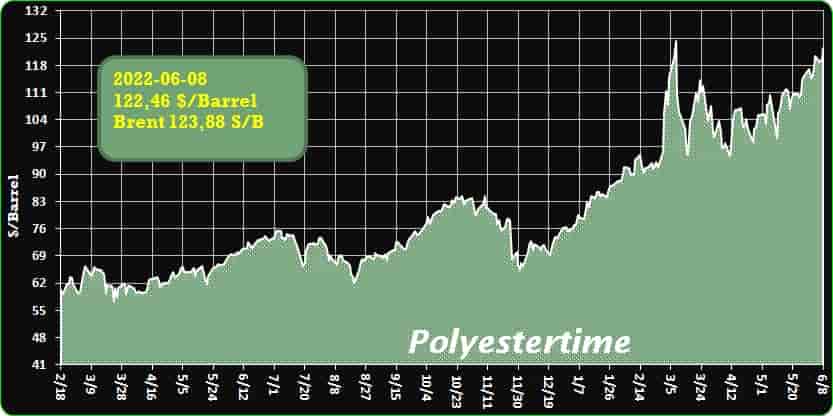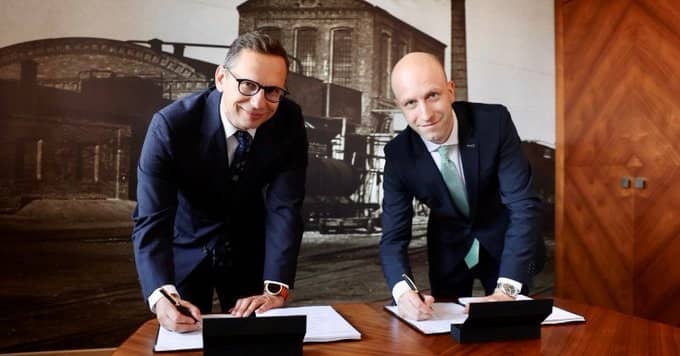Recycling-processes – Flexible-packaging 08-06-2022 - Arhive
Recycling-processes – Flexible-packaging
Crude Oil Prices Trend

Not nearly enough hype: Why all recycling processes are important for a circular economy / A reply from Ingemar Bühler, managing director of Plastics Europe Deutschland
Recently, the Plasteurope.com editorial team wrote in their Plastic Fantastic commentary that the “hype surrounding chemical recycling” was getting on their nerves.
“Ex officio”, as it were, but also from a deep inner conviction, I would like to disagree here: our industry’s communication on chemical recycling is certainly not a hype – an exaggeration, according to the origin of the word.
The issue is in fact incredibly important, for two reasons. The first is because all recycling processes with their respective performance ranges are the keys to the transformation towards a circular economy and climate neutrality.
Defossilisation will only succeed if we use all the technologies at our disposal to close the loop. Recycling-processes – Flexible-packaging
The second is because chemical recycling is assessed and discussed by many with a level of knowledge that has long since become obsolete. A lot has happened: processes have become more sophisticated, the questions of energy expenditure, efficiency, and scaling have been addressed on a fundamental level.
It is true that, currently, only about half of all plastics waste is recycled. In terms of technology, we are quite capable of recycling almost any plastics, and with smart networking of the different processes, we can even recycle complex compounds and heavily contaminated fractions. If we want to achieve a situation where less and less plastics are burnt and more and more plastics are consistently recycled, we need to look at the entire toolbox of technologies with an open mind and without bias. There is no material, no industry that is in a better position than the plastics industry to put the idea of a circular economy into practice. Meeting this challenge is worth any accusation of hype to me.
For the chemical recycling process to be economically and ecologically worthwhile, we need large-scale plants that work around the clock. In order to invest billions of euros in the construction of such plants, companies need both regulatory clarity and reliable conditions. For me, this also includes equal treatment of the different recycling technologies, for example in the question of a recognition to recycling quotas. We can only expect entrepreneurs to invest in high-tech industrial facilities of both mechanical and chemical recycling if the commercialisation of recyclates meets a functioning and free market. Recycling-processes – Flexible-packaging

-Linde Engineering to extend Slovnaft’s polypropylene capacity in Slovakia
Linde Engineering announced it has been selected by Slovnaft, a member of the MOL Group, a leading integrated Central Eastern European oil and gas corporation, to conduct a complex large-scale revamp of a polypropylene (PP3) plant in Bratislava, Slovakia. Recycling-processes – Flexible-packaging
The revamp will extend the plant’s capacity by 18 per cent to 300 kilotons of polypropylene per year, and the storage facility will be expanded from the current 45 to 61 silos in total. The revamped plant has been designed to offer a higher degree of operational flexibility by producing multiple product grades and utilising intermediate storage to ensure just-in-time production. Furthermore, the project will incorporate environmental measures to capture waste gas streams in compliance with local regulations.
“The revamp will enable Slovnaft to meet rising demands from the polyolefin processing industry,” said Juergen Nowicki, CEO Linde Engineering. “The project is challenging given its complexity: Interdependency with other process facilities allows only a narrow time frame for a shutdown. With our proven expertise and best-in-class services, we will be able to complete all installation works, including construction, commissioning and testing,” underlined the CEO of Linde Engineering.
Several studies performed by Linde Engineering between 2016 and 2020 laid the foundation for Slovnaft’s investment decision.
“One of the goals of our updated 2030+ strategy is to reduce the production of fossil fuels and strengthen the production of basic plastics. Linde Engineering is our reliable partner. Recycling-processes – Flexible-packaging

–Linde-Engineering to extend Slovnaft’s polypropylene-capacity in Slovakia
–BOPET-Films-Europe and Vita-Nova breathe new life into household flexible-packaging
–Magnetic-confinement-fusion: energy that imitates the stars
–Packaging under fire-over-sustainability-concerns
–Saudi-Arabia hikes July-crude-prices surprisingly high for Asia-buyers
–Thermore-Group launches EVOdown made using recycled-PET-bottles
–Borealis received a binding offer from AGROFERT for the acquisition of nitrogen-business
Recycling-processes – Flexible-packaging
